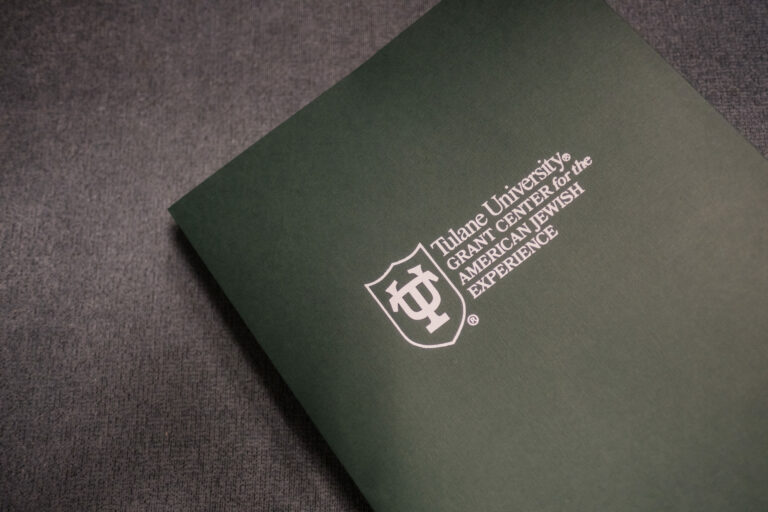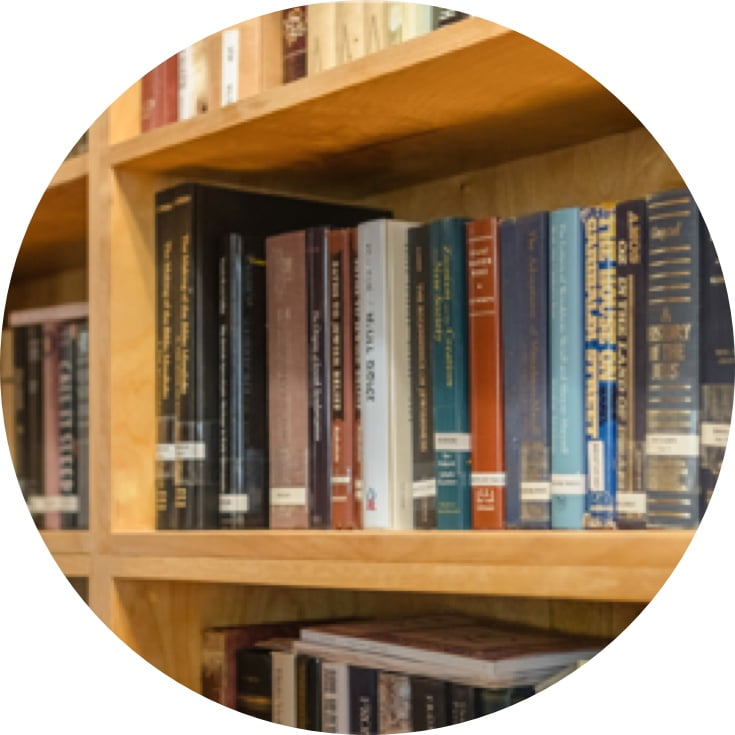Primary Theme: American Jewish Arts and Culture
Frankely Judaic Podcast: Golan Moskowitz, “Exploring Jewish American Drag: History, Identity, and Influence”
In this episode, cultural historian and literary scholar Golan Moskowitz discusses his current book project, which explores the cultural history of Jewish drag and its relationship with Jewish identity in America.
When Life’s a Drag: A Look into the History of Jews & Cross-Dressing Podcast Episode with Golan Moskowitz
Every year on Purim, Jews around the world stage shpiels, or plays, that not only feature people in costumes, but cross-dressing as well. These Purim events have allowed Jews to participate in drag throughout history, and have opened the door for other traditions like cross-casting in theater.
In this episode, we’ll hear from scholars Golan Moskowitz and Naomi Seidman and former drag queen Rabbi Amichai Lau-Lavie about Jewish historical examples of drag, Jewish contributions to the art and culture of drag, and how Jews have used drag to explore trauma, identity, and belonging.
Scholars in Session: Jews and Drag-An American Cultural History 1900-2020 with Dr. Golan Moskowitz at JCC Detroit
Golan Moskowitz, 2024-2025 University of Michigan Frankel Institute Fellow, explores the Jewish American cultural history of the gender-transcendent performance art of drag, from early twentieth-century Yiddish vaudeville through contemporary Emmy-winning reality television. Professor Moskowitz will discuss how marginalized Jewish artists, writers, and performers creatively process legacies of embodied otherness, focusing especially on Jewish American descendants of immigrants and Holocaust survivors, as well as on LGBTQ Jewish creatives.
Presented by SAJE (Seminars for Adult Jewish Enrichment). Co-Sponsored by the Frankel Institute for Advanced Judaic Studies, University of Michigan and JLearn.

“Make me a King” Short Film Screening and Talkback
The Grant Center for the American Jewish Experience screened Make Me a King, a short film about Ari, a Jewish Drag King ostracized by their family,
CULTURE & HERITAGE SERIES – The Jewish Deli: Lecture by Ted Merwin – Author of Pastrami on Rye
For much of the 20th century, the corner Jewish deli was an iconic institution in both Jewish and American life—a kind of homeland for the soul, with pickles on the side. As a social space it rivaled the synagogue as the primary gathering place for the Jewish community. At the same time the deli became an icon in popular culture, featured in a plethora of plays, films, TV shows, songs and stand-up routines.
Kosher Soul: Black Jewish Identity Cooking with Michael W. Twitty
Michael W. Twitty is an award-winning culinary historian and food writer. His 2017 book, “The Cooking Gene,” traced his ancestry through food from Africa to
Larry Kanter Lecture Series – Wild Outside in the Night: Maurice Sendak in Queer Jewish Context
The late Jewish American gay artist Maurice Sendak (1928-2012) changed the face of children’s literature by depicting emotionally isolated, unruly, and ethnically particular protagonists who
Moishe’s Queer and Wild Rumpus
In this episode, we speak with Golan Moskowitz, Assistant Professor in the Department of Jewish Studies at Tulane University, about Maurice Sendak. Golan discusses Sendak,
Maurice Sendak in Queer Perspective
Golan Moskowitz read to us from his new book, Wild Visionary: Maurice Sendak in Queer Jewish Context (2020), and conversed with leading scholars Jack Halberstam
Wild Visionary: Maurice Sendak in Queer Jewish Context
Maurice Sendak was once described as “one of the most powerful men in the United States,” by art critic Brian O’Doherty, for having “given shape
Talk: “Wild Outside in the Night: Queer Jewishness, Childhood, Maurice Sendak” by Golan Moskowitz
“Wild Outside in the Night: Queer Jewishness and Childhood Liminality in the Picture-Books of Maurice Sendak” by Golan Moskowitz The late Jewish American gay artist
Golan Y. Moskowitz, “Maurice Sendak in Queer Jewish Context”
Golan Y. Moskowitz “Maurice Sendak in Queer Jewish Context” with a response by Naomi Seidman. The late Jewish American artist Maurice Sendak (1928-2012) changed the





